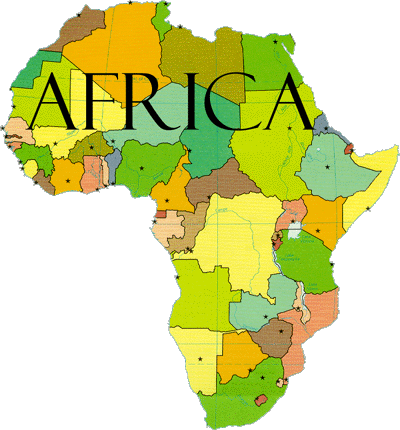The New Partnership for African Development came to being in July 2001 after the then Organisation of African Unity (OAU) adopted it at the 37th session of the Association of Heads of State and Government in Lusaka, Zambia.
Its cardinal objectives are to eradicate poverty, promote sustainable growth and development, integrate Africa with the rest of the world and accelerate the empowerment of women. Its priority areas are political, economic & corporate governance, agriculture, infrastructure, health, science & technology, market access, tourism and the environment.
Twelve years down the line, what really is the impact of its formation in the continent?
The first flaw is its lack of autochthony. The imprimatur for its formation was sought by foreign bodies rather than by Africans whose interest they purport to serve. The United Nations Millennium Summit endorsed its resolutions in September 2000. Why should external validation be sought? Does the European Union run to the UN to get its nod? The foundation was rather shaky as the nexus between the partnership and the African people was severely compromised.
The civil society in Africa played a great role in the democratisation process during the gory days of army misrule. They have a closer interaction with the populace than most governments even at the grassroots level. One wonders why they were totally excluded from the decision making process that led to its adoption! They are the ones that can pass the message across to the populace most effectively. They would better guarantee the implementation of its resolutions and ensure it has a direct impact in the lives of the masses. The bane of most African States was the exclusion process by key groups during the independence struggle which led to severe crisis after the imperialists departed. Why is NEPAD repeating this? It was criticised by civil society as being built on the Washington model of economic development. it is a fact that the key stakeholders in the continent apart from civil society were excluded. How many contributors to the economic development of the continent from the business sector were invited for the deliberations? How many small and medium scale enterprise owners – the bulwark of economic activities were part of the deliberations? How many in the informal sector – the largest labour employer as well as the sector with the least barriers to entry and exit were part of the proceedings? Its activities are not well known as there is a clear disconnect with the majority of the people. Its website does not have much information which is unfortunate as we are in the information superhighway age.
Abdoulaye Wade, former Senegalese President and one of its founding fathers criticised it for wasting millions of US dollars with nothing to show for it. Coming from a founding father, this is not a criticism to be dismissed lightly.
The partnership with the World Bank is suspect. It is a well known fact that the Bretton Woods Institution is largely responsible for the economic woes of the continent. It works in cahoots with the International Monetary Fund to mount pressure on African countries to remove subsidy on essential services like education, agriculture and healthcare while not recommending same for the west. The devaluation of the Nigerian Naira and Ghanaian Cedi has its roots in the ill advise leaders of those countries took from the Washington headquartered institution. The Occupy Nigeria movement of 2012 when many lost their lives as a result of the subsidy removal of the only foreign exchange earner of the country – petroleum is still fresh in our memory. The $18 billion debt buy back brokered by the current Nigerian Finance Minister, Dr. Ngozi Okonjo-Iweala during her first outing as Finance Minister under Obasanjo shouldn’t be forgotten in a hurry! It is noteworthy that she was also Finance Minister when the protests broke out last year. What is the wisdom in the content pitching its tent with an institution notorious for its anti-people policies? At the height of the Asian Financial crisis in 1997, Malaysia under Dr. Mahathir Mohammed was greatly pressurised to take a loan from the IMF to bail the country out. He stood his ground in his stout refusal and was brutally pilloried in the western controlled media. The same IMF were forced to eat their words a few years later and admitted he was right. Malaysia didn’t become a second world country on the basis of an alliance with the World Bank. Singapore under Lee Kuan Yew did not leapfrog from a third to a first world nation on the basis of a partnership with the World Bank.
There is no African State that is out of the third world trap despite our alliances with this institution since independence. It is high time we made a radical u-turn by enacting a home grown development strategy that will make poverty history. Outsourcing our thinking caps to the west would only ensure the merry go round continues ad infinitum!
@ademiluyitony


